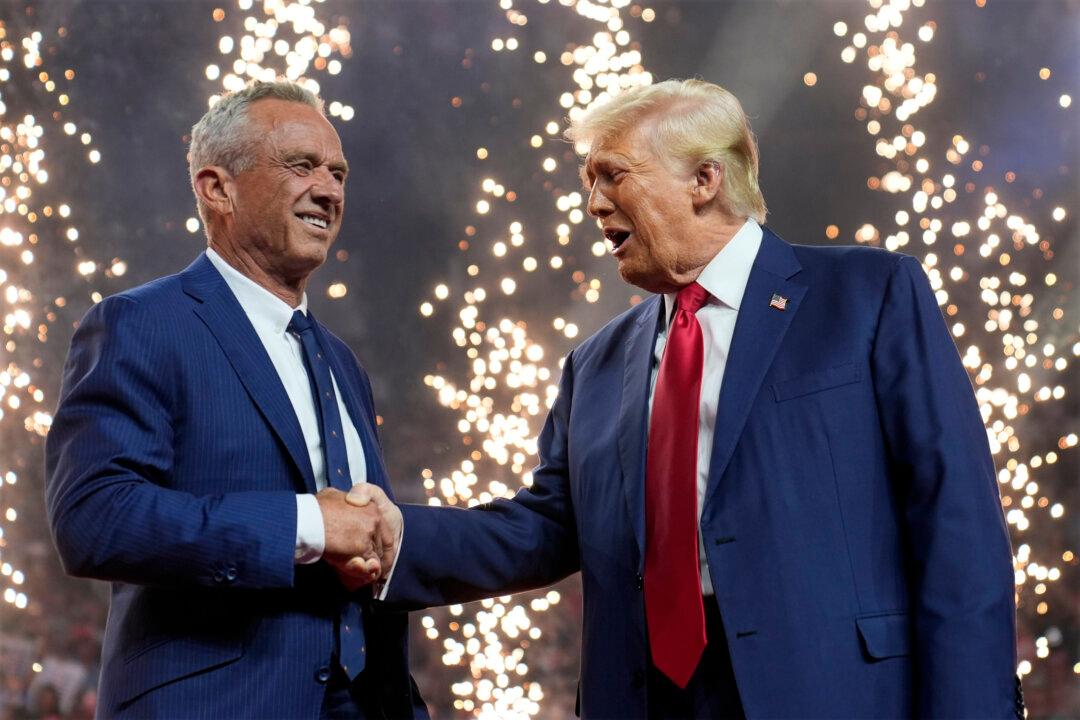Former President Donald Trump says he will appoint Robert F. Kennedy Jr. to a new federal panel on chronic disease should he win reelection, Trump announced during an Aug. 23 rally featuring the independent candidate.
“I want to salute Bobby’s decades of work as an advocate for the health of our families and our children. Nobody’s done more,” Trump said during the rally in Glendale, Arizona, referencing Kennedy’s decades of work for Children’s Health Defense.





